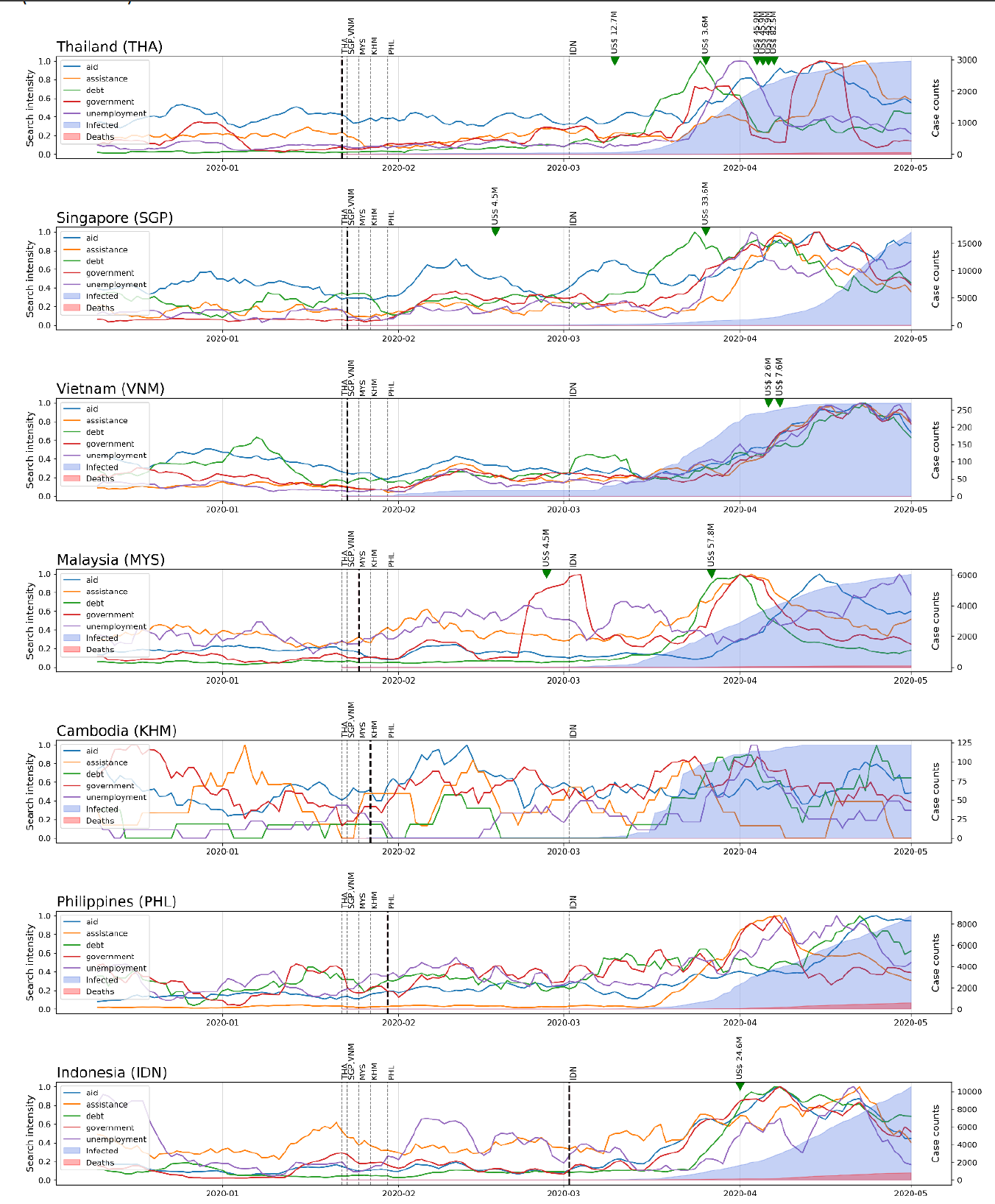Economic Anxiety and COVID-19 in Southeast Asia
by Dieter WangGoogle Social Protection COVID-19
Challenge
The COVID-19 pandemic has affected the global economy through lockdowns, disrupted supply chains and uncertain economic outlooks. Swift reaction by policy makers are required to prevent a deep recession. However, macroeconomic indicators such as GDP, industrial output or price indices are slow, lagged and highly aggregated. The World Bank FCV team analyzed how COVID-19 cases fuel the economic anxiety in ASEAN countries using granular Google search trends data.
Solution
To measure economic anxiety, search trends were collected for seven ASEAN countries (Singapore, Malaysia, Thailand, Cambodia, Indonesia, Philippines, and Vietnam) in five categories on a daily frequency.
 Table 1: Search categories related to economic anxiety
Table 1: Search categories related to economic anxiety
The search queries are related to the COVID-19 cases (figure 1). In Vietnam, Singapore and Indonesia, overall anxiety grows as infected cases increases. In countries such as Malaysia, Philippines and Thailand, different categories gain importance in turns. In Malaysia, people initally searched for government-related queries, before unemployment-related searched started to surge.
 Figure 1: Google searches relating to economic anxieties grow with COVID-19 cases
Figure 1: Google searches relating to economic anxieties grow with COVID-19 cases
The normalized search intensities (left axis) are composition of relevant queries, in excess to searches of one year ago in the same period. The blue and red areas are the infected and death case numbers (right axis). The vertical dashed lines show when the first case was reported in the respective country. The green triangles are fiscal stimuli (million USD).
Impact
Google search trends can give policy makers real-time insights into the growing anxiety due to COVID-19 cases and reactions to fiscal policies. The readily availability makes this an attractive tool to assess economic sentiments and identify growing anxieties. Monitoring these trends may be a helpful addition to support decision making.